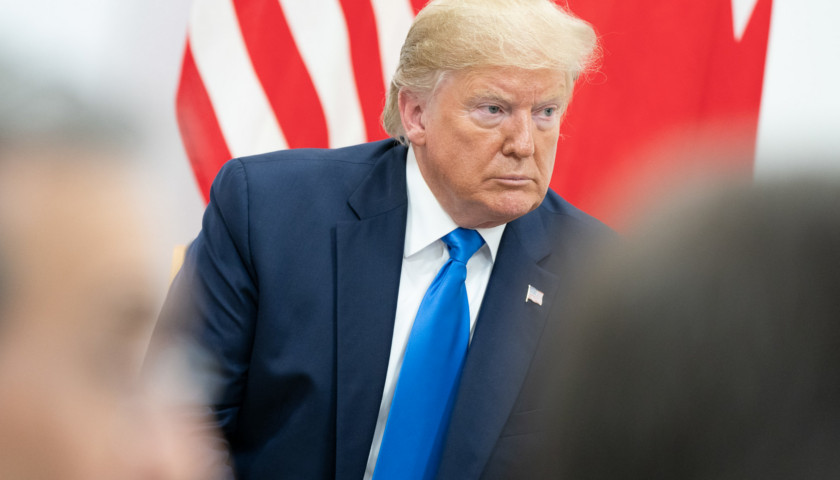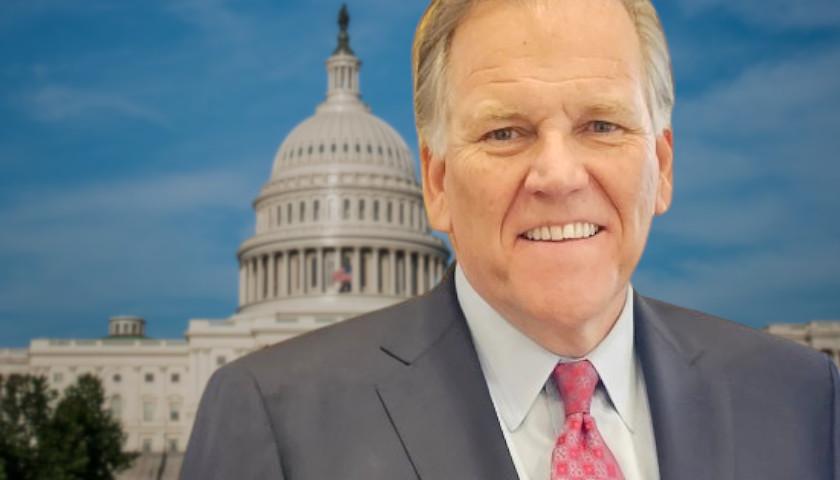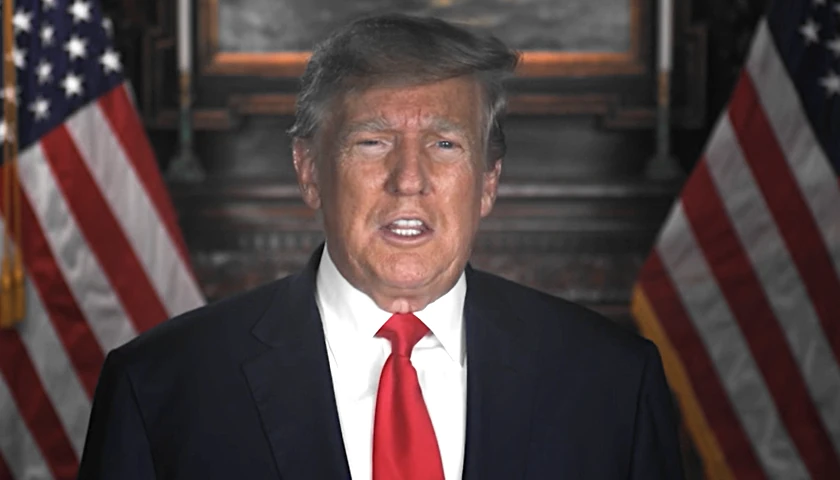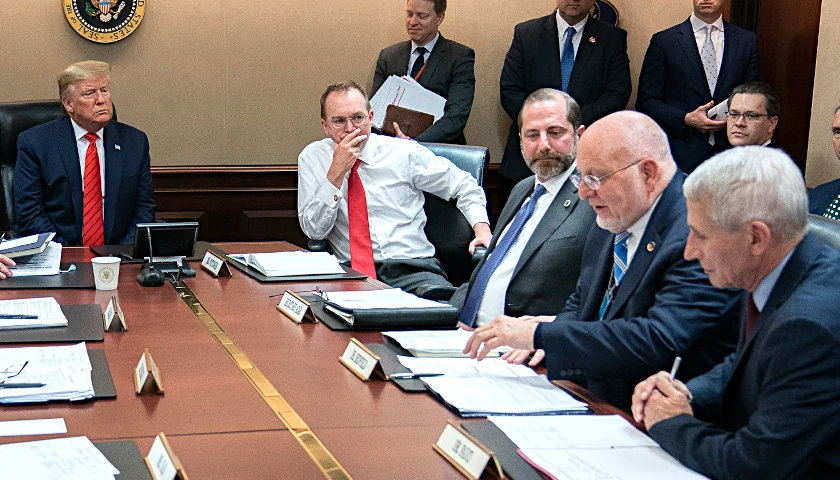by Russell A. Berman
Russia’s invasion not only poses an existential threat to Ukrainian sovereignty, but it also represents a direct challenge to American power and credibility globally. If Vladimir Putin prevails, the promise of the United States to act as a security guarantor through NATO in Europe or on its own anywhere will be in shambles.
Moscow is clearly pursuing two goals simultaneously: territorial gains in Ukraine as part of the revanchist ambition to restore the Soviet-era sphere of influence and, more importantly, degrading American strategic prominence, with the goal of driving the United States out of Europe.
China and Iran are happy to cheer this on. What is at stake is therefore much more than the legitimacy of Ukrainian independence, as important as that is. We are facing a hot war as part of the global competition between the United States and its strategic opponents.
This global competition found its first prominent expression in the 2017 National Security Strategy of the Trump Administration. Thus, the Russian invasion provides an important opportunity to evaluate relevant Trump-era policies and to measure them against the track records of the preceding and subsequent administrations—that is, the foreign policy of the Obama and Biden teams—given the significant overlaps in their personnel.
In light of the war and the efforts by Europe and NATO to scramble to respond, it is striking how much the Trump Administration got right, often against the shrill opposition of the liberal foreign policy establishment. It is equally clear that the Democratic administrations made severe missteps. Five key points stand out.
First, by the beginning of the Trump Administration, a rebalancing of U.S. interests in Europe had become timely. The Brexit vote, prior to the Trump victory in November 2016, meant that the United Kingdom would no longer participate internally in the formulation of the foreign policy of the European Union. Because the UK had formerly often advocated positions aligned with Washington, this change diminished American influence in Brussels.
It consequently became urgent to find new best friends inside the EU. Donald Trump chose to cultivate bilateral relations with the countries on the Eastern Front, from the Baltics to Bulgaria, and especially Poland—where the president delivered one of his best speeches—and Romania. Many of these countries had—and continue to have—a much sharper perception of the Russian threat than did so-called old Europe further to the west, notably Germany, which was no longer the front-line state it had been during the Cold War.
Trump tried to move troops from pointless deployments in Germany to the east where they were needed. In light of Putin’s aggression, the wisdom of that planned repositioning is indisputable, both to defend NATO allies and to assert American power. The Biden Administration is belatedly following the path that Trump laid out.
Second, like French President Emmanuel Macron, who famously diagnosed the brain death of NATO, Trump called out the endemic lack of commitment of many NATO members to their own defense, especially their refusal to meet the Wales Pledge to dedicate 2 percent of their GDP to security. Trump critics howled when he appeared to make U.S. security guarantees contingent on the behavior of allies, yet the allies’ reluctance to contribute to their own defense was eroding NATO. The issue became especially pointed in Germany—Europe’s largest economy, whose 2 percent meant the most—as Trump’s ambassador Richard Grenell hammered on this point and succeeded in beginning to turn German public opinion.
Yet only in the wake of the invasion of Ukraine has German Chancellor Olaf Scholz finally promised to increase defense spending. The jury is still out as to whether he will make good on the promise. Meanwhile, German Defense Minister Christine Lambrecht is dragging her feet on supplying arms to Ukraine. Trump and Grenell were right to push back against the Putinversteher, the Russia apologists in the German establishment who still have a lot of sway.
Third, coupled with the achievement of American energy independence, the Trump Administration repeatedly called out European reliance on Russian energy resources, notably Germany’s pursuit of the Nord Stream 2 pipeline. Operating the pipeline not only would have represented a major strategic vulnerability to Germany; Central Europeans regarded it more generally as a significant security threat, with then Polish Defense Minister Radek Sikorski likening it to the Molotov-Ribbentrop pact that carved up his country between Russia and Germany in 1939. Those kinds of memories do not disappear overnight.
With bipartisan support, the Trump Administration imposed sanctions on the pipeline, but the Biden Administration frivolously lifted them as a gift to Berlin. The pipeline would be in place now, except that the Russian invasion forced the German chancellor’s hand. The project is frozen—for now.
It is worth remembering how, against the backdrop of the partisan vilification of President Trump, liberal voices lionized German Chancellor Angela Merkel. She was celebrated as the “leader of the free world,” and even rewarded with an honorary degree from Harvard. It is surely time to recall that this same free-world leader was the primary engineer of German energy dependence on Russia. Merkel dismantled domestic energy production, and consistently defended Nord Stream 2 as a simple business venture with no strategic import. As a result, even today, Germany continues to purchase massive amounts of fuel from Russia, effectively financing Moscow’s Ukraine campaign.
Merkel has yet to utter a word of mea culpa (unlike her finance minister, Wolfgang Schäuble, who has conceded the profound flaw in the German policy of economic entwinement with Russia). Needless to say, Merkel’s erstwhile fans in the United States have not called out her advocacy for the pipeline.
We need to be clear: Merkel led the free world into a catastrophe.
Fourth, strength makes a difference in foreign policy, and this includes the willingness to signal strength. Both the Obama and Biden Administrations broadcast weakness. President Obama’s refusal to make good on his own red line in Syria—a Russian proxy war—was a calamity for American credibility. According to former French President François Hollande, it was a “decisive moment,” after which “Mr. Putin considered Mr. Obama weak.” The same holds for the hot mic moment, when Obama explicitly promised Russian President Dmitry Medvedev that he would have “more flexibility” after the 2012 election. By February 2014, Russia had invaded Crimea.
Similarly, the Biden Administration’s celebration of the chaotic departure from Afghanistan demonstrated a willingness to tolerate defeat. Add to this the repeated reassurances from the White House about what military steps it would not take, and one can understand why Moscow was willing to take the gamble of the invasion.
Fact is, the two invasions of Ukraine—2014 against Crimea and now against the Ukrainian homeland—took place under two weak Democratic presidents. President Trump’s combination of military build-up, tough talk and unpredictability arguably kept malign Russian ambitions at bay.
Fifth and last, for all of the fretting over Trump’s “America First” rhetoric, his administration was able to strengthen collaborative relations with key non-Western partners, notably the Gulf States and India. The Biden Administration has lost them all.
Given Washington’s refusal to provide sufficient protection to Riyadh and Abu Dhabi against the Houthis in Yemen, and especially in light of the White House’s war of words about Saudi Arabia as a “pariah state,” it can surprise no one that Washington’s pleas for increased oil production have gone unanswered. Yet finding alternative energy sources and pushing down oil prices ought to be crucial components of the response to the Ukraine invasion. Instead, the Biden Administration has successfully driven the Saudis toward Moscow and Beijing.
The United States also has lost India’s support on U.N. votes regarding Russia, even though India had become a lynchpin of U.S. strategy in the Indo-Pacific as a member of the “Quad,” which was revived in 2017 during the Trump Administration as a vehicle to counter China. Once one looks behind today’s self-congratulations that the West has come together in the face of the Ukraine War, one finds an American foreign policy that is fraying dangerously. The world is less secure under this administration and America’s interests are more endangered.
Setting this record straight is important in its own right, but especially because some commentators are taking the Russian invasion as an opportunity to rehash the myth of some collaboration between Trump and Putin. This is “Russiagate” redux, although the allegations have been proven false time and again.
The journalistic chatter continues, nonetheless.
The crux of the matter seems to have degenerated into the complaint that Trump today does not engage in the same level of verbal denunciation of Putin that emanates from the White House. For the record, Trump’s characterizations of Russia have become harsher, and he too has spoken of the “genocide” in Ukraine, but this begs the question concerning the usefulness of such name-calling by the sitting president. The evidence that Putin is responsible for war crimes is strong, but it is unclear whether calling him a war criminal will persuade him to end the war.
On the contrary, if Putin believes he may face a criminal tribunal, he has every incentive to persist. In that sense, Macron has pointed out that Washington’s rhetorical bluster can only be counterproductive. The problem is not Trump’s terminology but Biden’s off-script appeal for regime change in the Kremlin. Washington helping Ukraine now would require hurling fewer empty insults at Moscow, while providing more effective weapons more quickly to Kyiv. In terms of real policy, the Trump Administration had it right.
– – –
Russell A. Berman is a senior fellow at the Hoover Institution and Walter A. Haas Professor in the Humanities at Stanford University. He formerly served as senior advisor on the policy planning staff of the U.S. Department of State.




